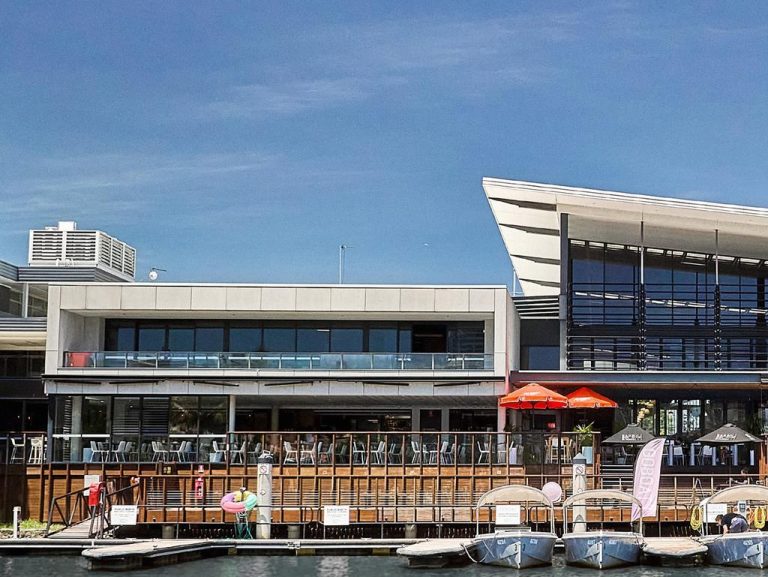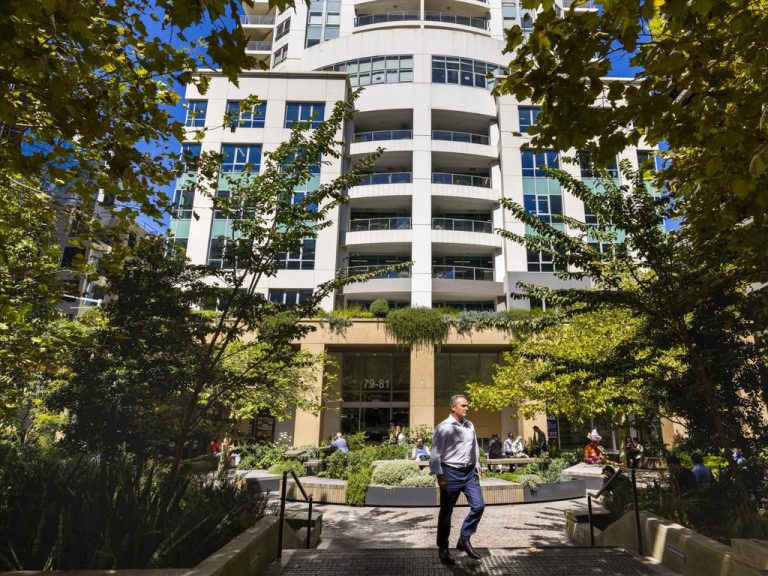Westfield Tea Tree Plaza stake hits the block as fund sells
The $3.5bn shopping centre fund which property group Dexus took over from financial services company AMP is putting one of its largest assets – a 50 per cent stake in Westfield Tea Tree Plaza in Adelaide’s northeastern suburbs – on the block for about $350m.
The fund has been steadied by Dexus after it picked up its management as part of its purchase of Collimate Capital’s local real estate and infrastructure empire, but it is still dealing with redemptions.
Dexus saw off a challenge for the fund from GPT, which had proposed a merger with its own similarly-sized retail property fund, and Vicinity Centres, which put itself forward to run a slab of AMP’s retail assets.
CBRE’s Simon Rooney is handling the sale and noted the surge of interest in the sector, where there is about $2bn of high quality regional retail assets in play. They include landmark assets such as Cairns Central in Queensland, Erina Fair in NSW and Westfield Whitford in WA.
Investors are again focused on big retail as their income has been rebased to back market rates and retailers have rationalised their space through Covid-19.
Despite the slowing economy, their underlying performance is robust, particularly against some faltering property sectors.
Big players see the retail cycle as running 18 to 24 months ahead of the office market and nimble private operators including Alceon, Fawkner, Haben, IP Generation, McConaghy and Sentinel are swooping on centres.
Offshore capital is also re-entering the market with the aid of local specialised partners as they chase the attractive returns on offer. More institutional domestic and offshore capital is ready on the sidelines as private players reset the market and the big players will re-enter the sector when interest rates stabilise.
The Adelaide centre is co-owned by the Scentre Group and the half share offers value to the $400m-plus it was held at in the period before the coronavirus crisis. The 99,873sq m centre is anchored by retailers Myer, Big W, Kmart, Target, Coles, Woolworths and ALDI, and has about 240 specialty stores. The dining and entertainment precinct has about 10 restaurants and a Hoyts cinema complex including the first Lux screens in South Australia.
Indoor and outdoor entertainment are a key feature of the centre, which is undergoing a $40m upgrade. The 99,524sq m complex had total annual retail sales running at about $532m from 9.7 million annual customer visits.
Set on a landmark site of 20.7ha, the centre also has significant future expansion potential, to cater for a growing catchment in coming years.
“The sale campaign provides a sought-after opportunity to acquire a 50 per cent interest in a dominant and strong performing regional shopping centre within Adelaide’s growing northeastern suburbs,” Mr Rooney said.
“A fortress mall of this quality is always tightly held and we expect significant interest from both domestic and offshore groups, underpinned by the centre’s robust investment fundamentals, Adelaide’s attractive retail yield spread relative to Sydney and Melbourne, and South Australia’s stamp duty exemption on commercial transactions.”
Major tenants report a combined $246m in sales per annum and have a long weighted average lease expiry of 9.5 years by gross lettable area and 9.8 years by income. Together with the major tenants, the centre is securely leased, with major and national chain retailers at 94 per cent of space and 88 per cent of rental income.
“SA’s strong economic fundamentals are helping to fuel interest in high quality retail investment opportunities,” Mr Rooney said.
“This includes the state’s historically low unemployment rate, relatively strong growth in average weekly earnings, forecast population growth and resilient residential market which will support future growth in retail spending conditions.
When it was run by AMP, the vehicle was hit by redemptions in what was its flagship retail fund. In March, credit agency S&P Global Ratings cut its outlook on the fund to negative as it dealt with superannuation funds seeking to exit amid falling values in the mall sector.
Dexus has said the vehicle can handle the redemptions over the next two years, and it is putting a fresh strategy in place in the wake of broader investor unhappiness related to the instability of the former AMP platform.
Dexus has said it is confident that its revised strategy for the fund has been well received by investors, and it plans to move forward once redemptions have been satisfied.
Other big assets in the AMP fund include half interests in Westfield Southland in Melbourne and Westfield Liverpool in Sydney’s western suburbs, as well as stakes in Brisbane’s Indooroopilly Shopping Centre and Sydney’s Macquarie Centre.
AMP had already sold Rockingham Shopping Centre for $170m, which showed an 11 per cent discount to the book value of $192m.







